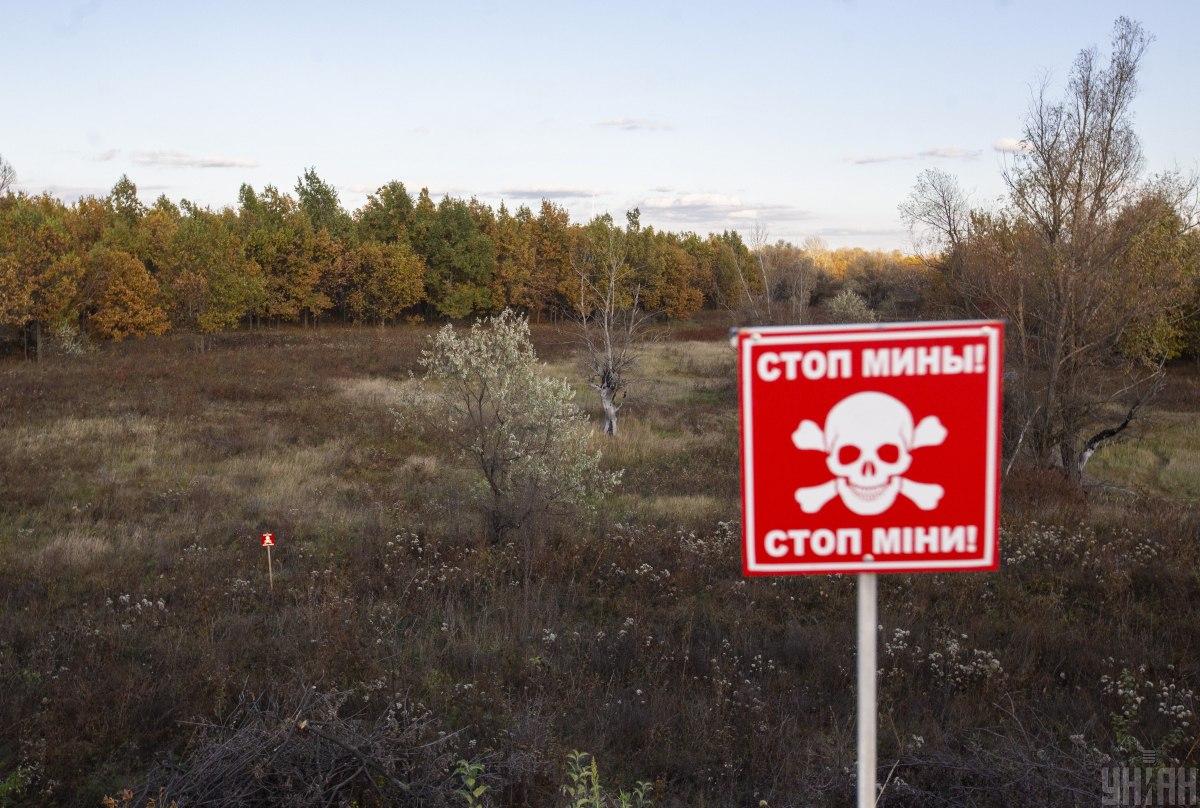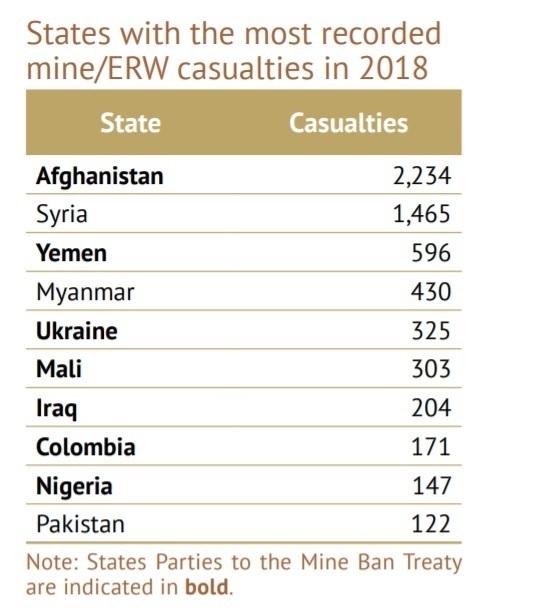
Ukraine ranks fifth among the states with the most recorded mine/explosive remnants of war (ERW) casualties in 2018, according to Landmine Monitor 2019.
"In 2018, the Monitor recorded 6,897 people were killed or injured by mines/ERW [Explosive Remnants of War] – 3,059 people were killed, 3,837 people were injured, and for one casualty the survival status was unknown. The continuing high total was influenced by casualties recorded in countries facing armed conflict and large-scale violence, particularly Afghanistan, Mali, Myanmar, Nigeria, Syria, and Ukraine. Accurate data gathering for active conflicts, however, remains challenging," the report said.

Afghanistan tops the ranking with 2,234 recorded casualties; it is followed by Syria (1,465) and Yemen (596). Myanmar ranks fourth with 430 recorded casualties and Ukraine with 325.
Ukraine currently estimates around 7,000 km² of contaminated land, but this cannot be reliably verified until survey has been conducted.
Read alsoTwelve hectares near Petrivske in Donbas cleared of explosives
According to the document, the vast majority of recorded landmine/ERW casualties were civilians (71%) where their status was known, a slight decrease in the ratio over recent years.
In 2018, children accounted for 54% of all civilian casualties where the age was known, an increase of seven percentage points from the 2017 annual total, and 12 percentage points in 2016.
Landmine Monitor 2019, which was presented in Munich, Germany, on November 21, provides a global overview of the landmine situation.
In particular, the authors monitored the compliance of the 1997 Mine Ban Treaty (or "Ottawa Convention") as the best framework for ending the use, production, stockpiling, and transfer of antipersonnel mines and for destroying stockpiles, clearing mined areas, and assisting affected communities.
In Ukraine, a national mine action program overseen by a national mine action authority and center is being developed with support from the Organization for Security and Cooperation in Europe (OSCE) Project-Coordinator and the Geneva International Centre for Humanitarian Demining (GICHD).

